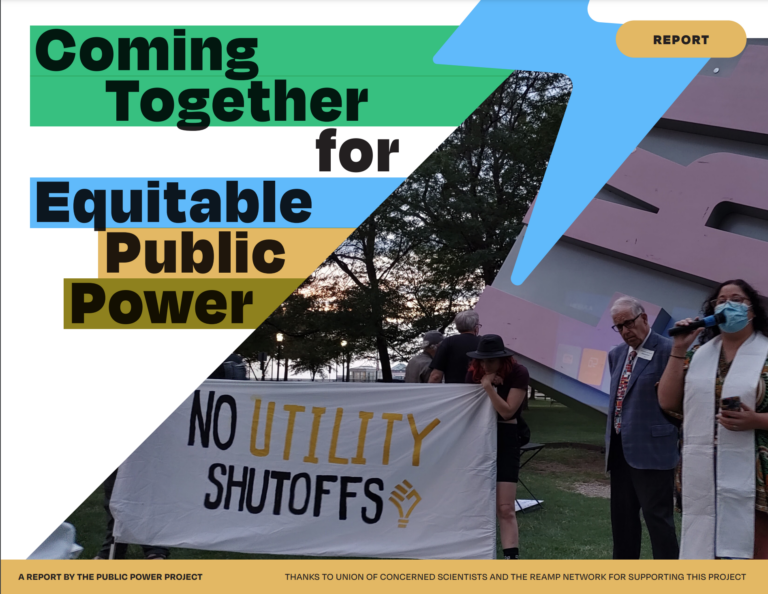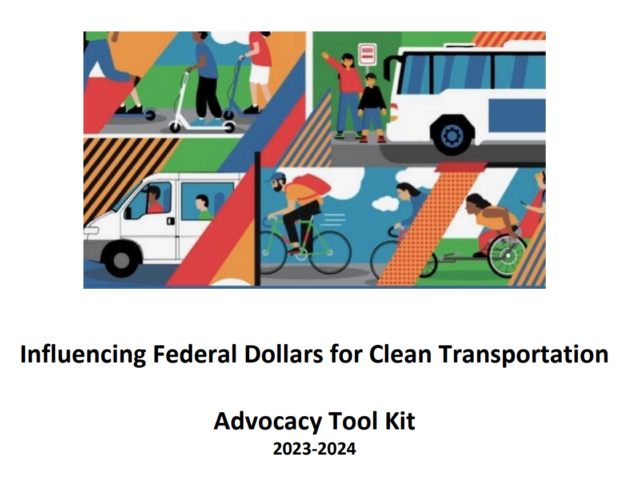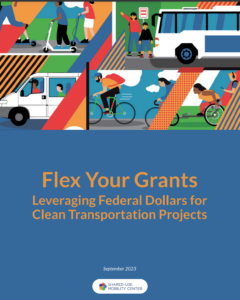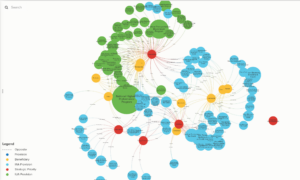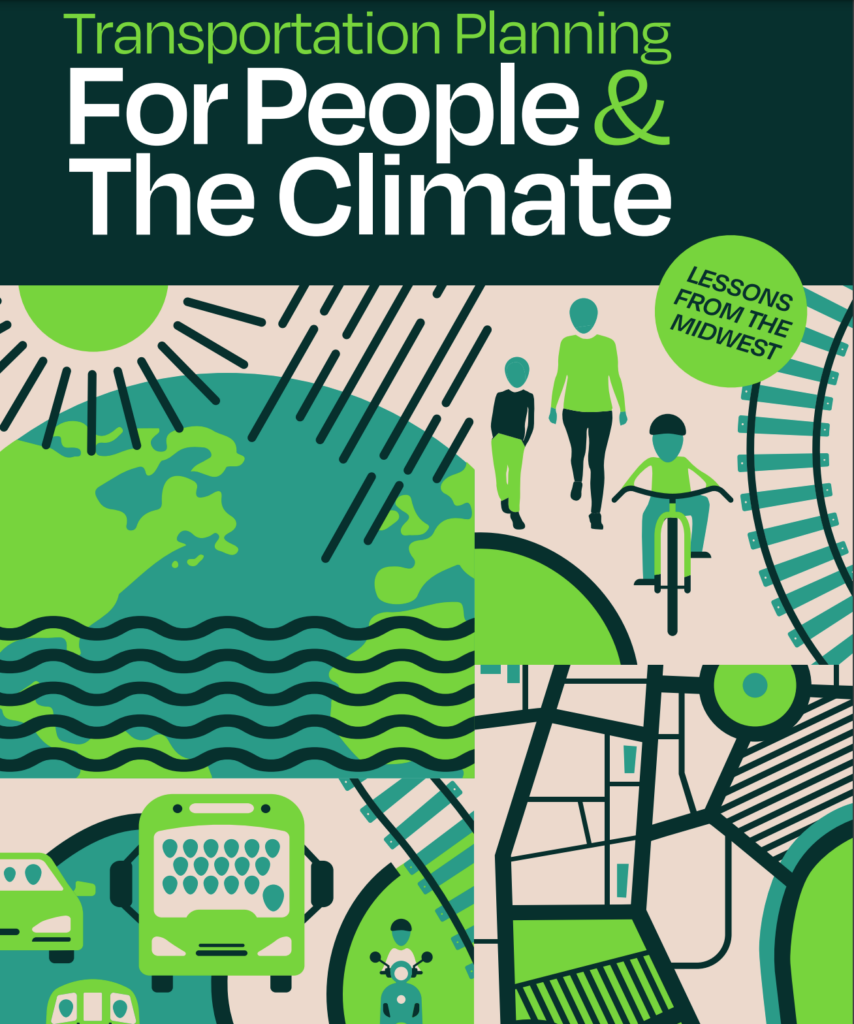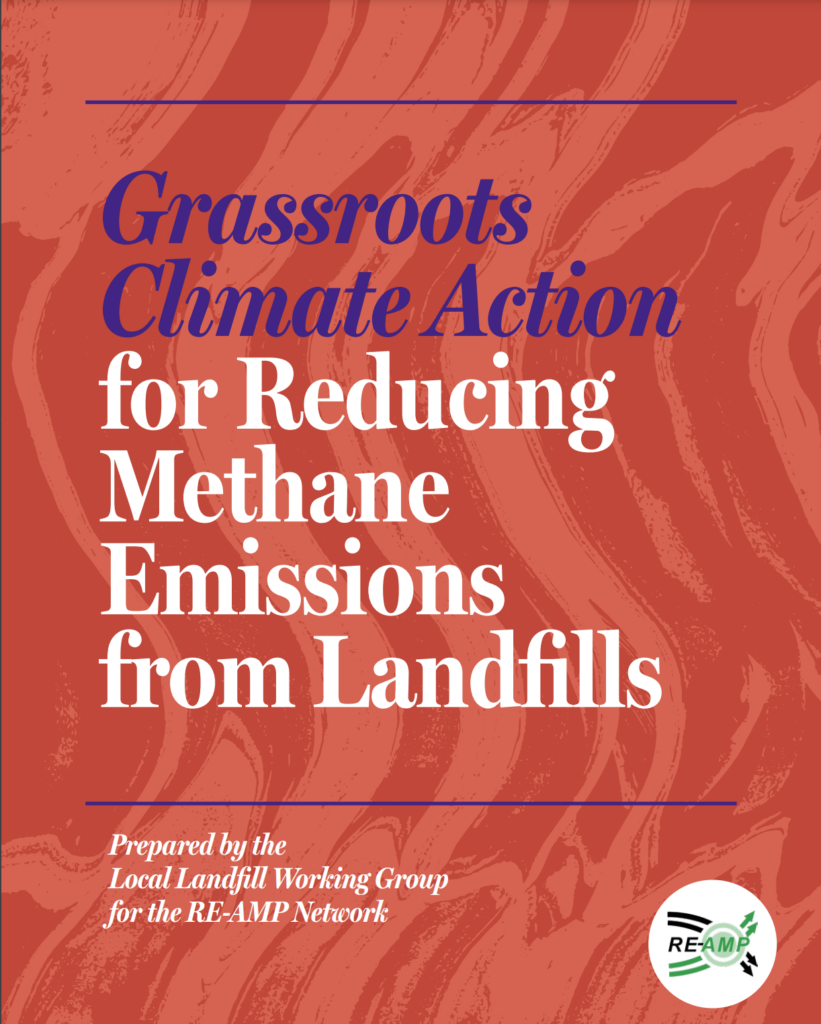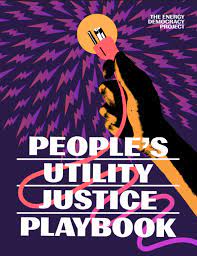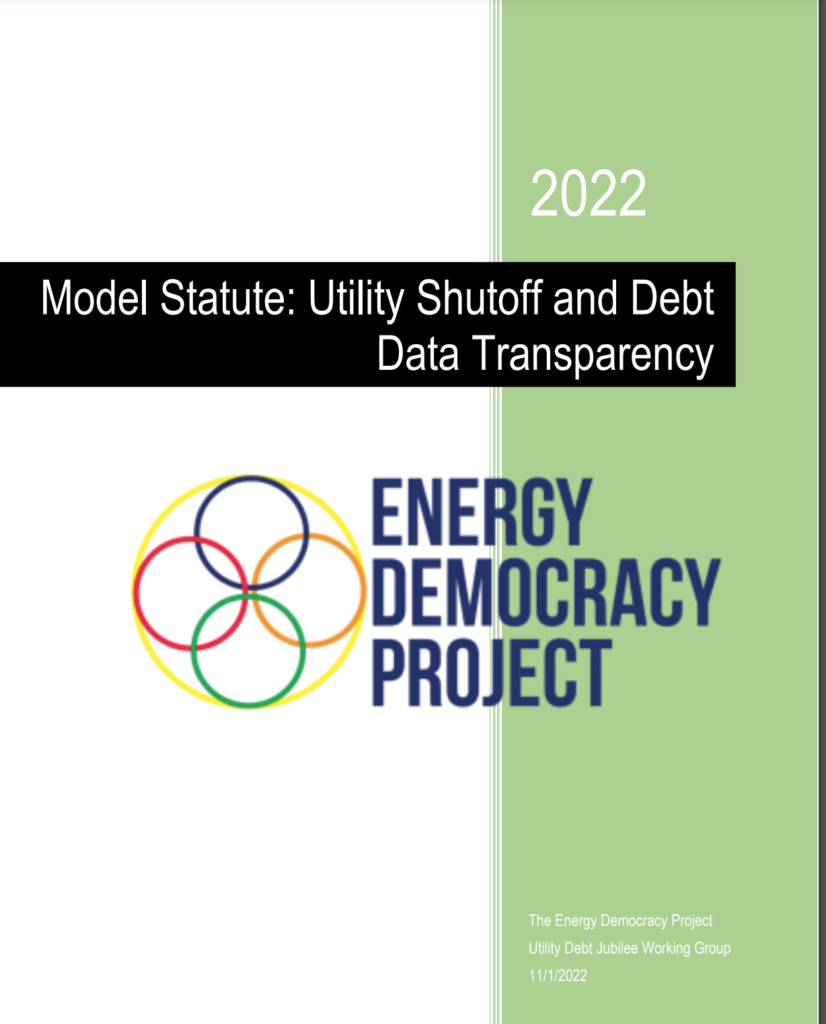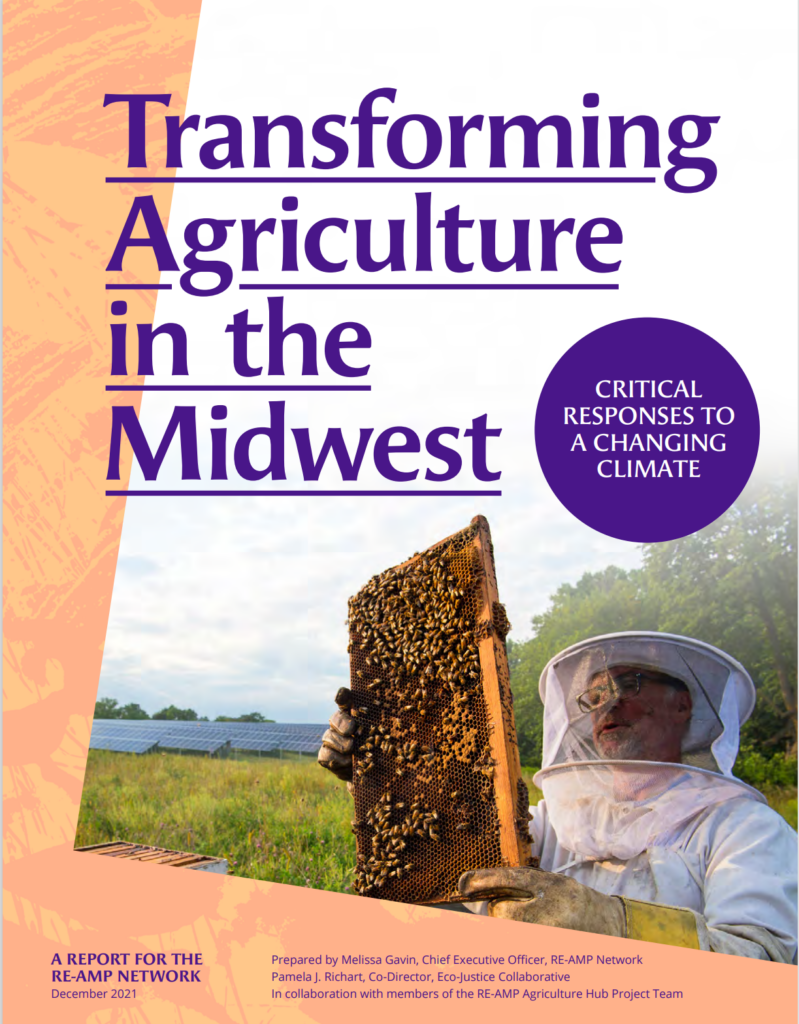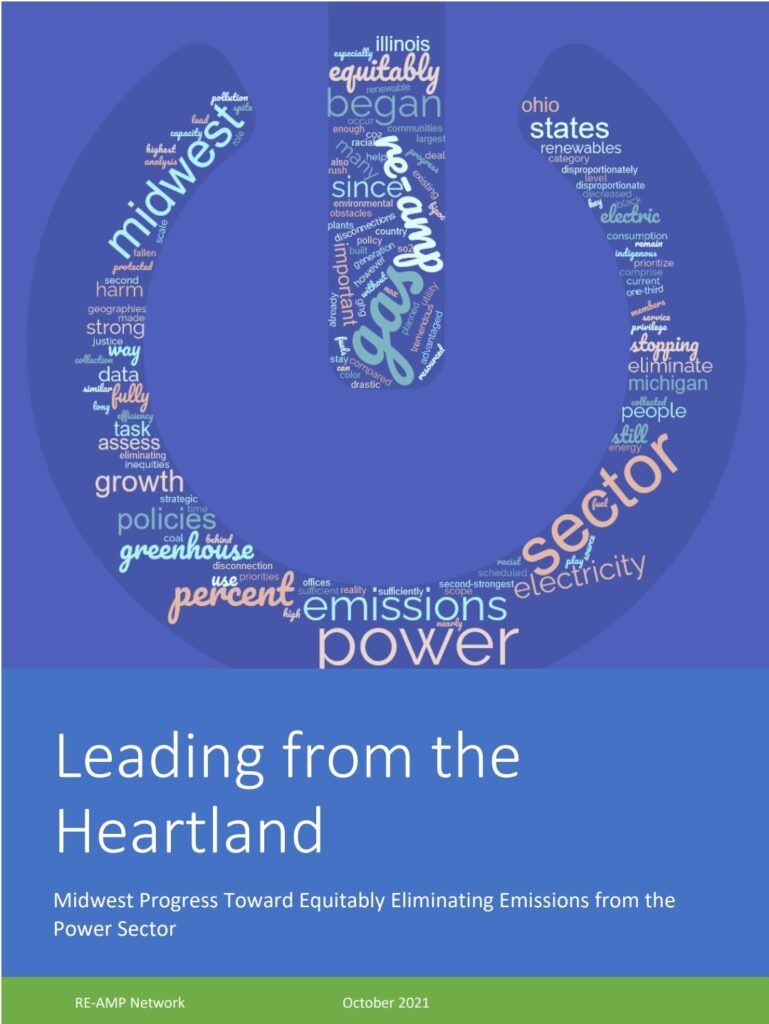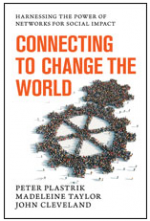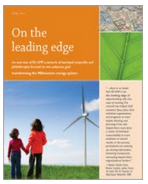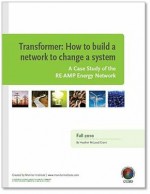Resources and Services
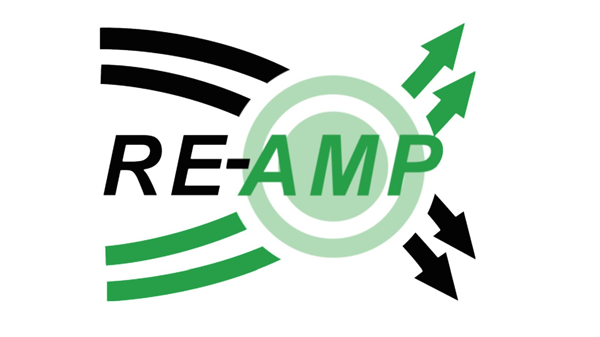
As energy democracy advocates thinking about public power, we need to have an understanding of the real equity and structural change concerns, as well as an assembly of best practices. A RE-AMP Action team created this report to share the insights they gained about how public power, in its incumbent and emergent forms, can be equitable, just, and democratic.
Influencing Federal Dollars for Clean Transportation Advocacy Toolkit: This toolkit is designed to help grassroots activists and organizations in their work to get decision-makers to enable people to get where they need to go without having to drive, as well as to clean up motorized transportation. It is a companion piece to the Flex Your Federal Dollars report, and was created as part of the same RE-AMP Action Team.
As part of a RE-AMP Action team, the Shared Use Mobility Center created this paper to explore how state, regional, and local governments can leverage new and existing federal funding sources to advance clean transportation projects. It explores specific grant programs administered by different federal agencies that provide funding for clean transportation projects, and highlights grant-winning projects as examples.
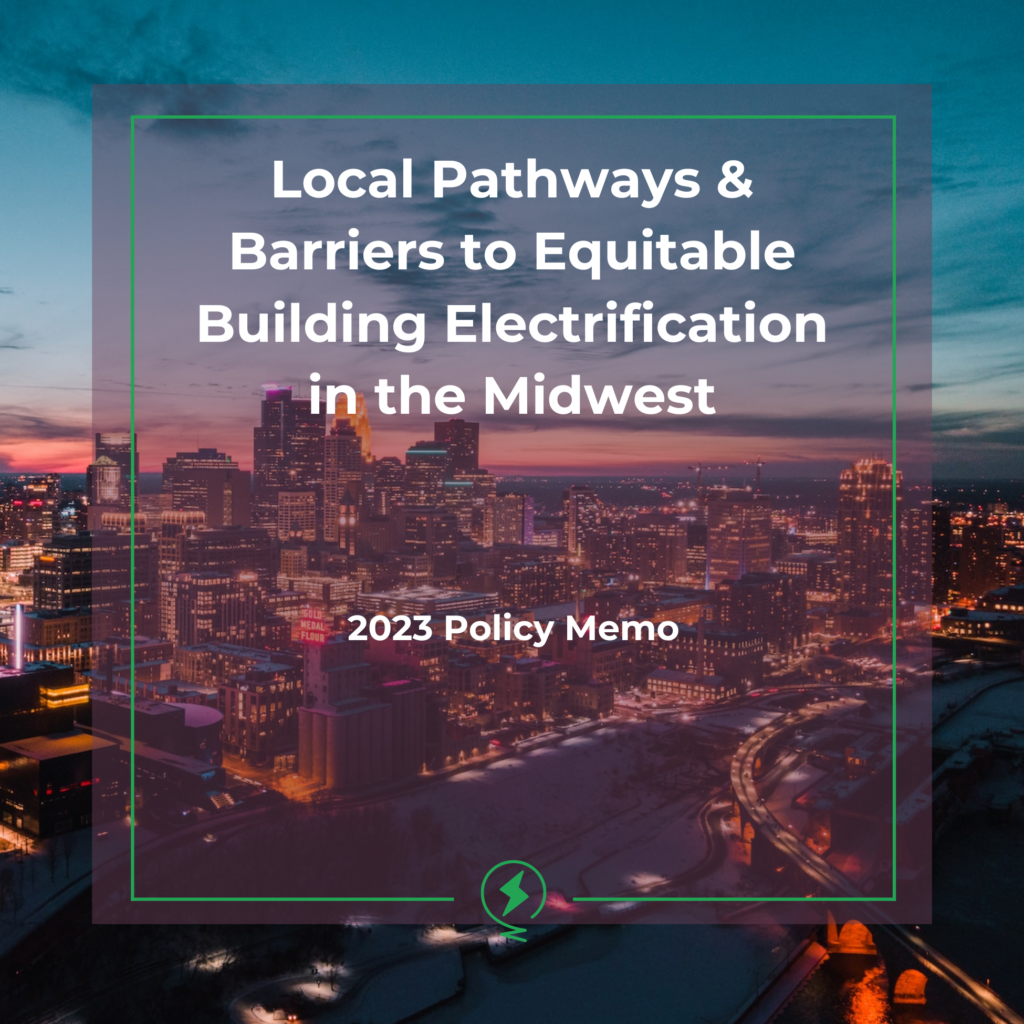
Our current policy landscape makes it hard to know what levers local decision makers can pull to advance building electrification in their communities. To dispel confusion and help local advocates and policymakers understand what is possible and how each pathway impacts equitable implementation of electrification, the RE-AMP Network and SAFE Cities at Stand.earth, have put together a policy memo exploring open pathways and barriers to local electrification in four Midwest states – Ohio, Michigan, Minnesota, and Iowa. This memo seeks to form a foundation and template for how to navigate policy and equity in electrification across the Midwest.
Just wading into federal funding but not sure where to start? Want to just see what money non-profits are eligible to apply for? Or is there just one program you want to learn more about? To help simplify the complicated federal funding landscape, RE-AMP has built this map to visualize the flow of federal funds. It looks at money from the Inflation Reduction Act and Infrastructure Investment and Jobs Act to eligible recipients related to RE-AMP Strategic Priorities (transportation, buildings, agriculture, and energy democracy).
This map is a work in progress, so if you have feedback or questions regarding it, please contact RE-AMP Program Manager Conor Cusack at conor@reamp.org.
Transportation, land use, and climate are inextricably linked. Whether people are walking, biking, taking transit, or using their personal automobile is largely determined by how easy it is to access the places they need to reach. RE-AMP wanted to see how well climate planning was being incorporated into transportation and land use planning, and vice versa. We examined all three types of plans in 25 different jurisdictions in the Midwest, and developed recommendations to help cities and counties plan for people and the climate.
Grassroots Climate Action for Reducing Methane Emissions from Landfills: This report examines opportunities for dealing with the climate pollution from landfills while multi-solving for problems like hunger and erosion. Note that two companion reports examine state-level opportunities and place this challenge in a larger context of Midwest culture. Although those reports are not currently available on this page, feel free to reach out for more information.
Energy activists are increasingly colliding with energy utilities, whose interests are often in conflict with the economic and climate justice needs of our communities. Utilities have their own playbook, now we have our own. This document exposes utility tactics and shares how communities have built power to fight back. RE-AMP was proud to contribute to this effort.
Access to data held by private utility companies is critical to understanding how policies around shutoffs, debt, and collections affect the affordability and accessibility of utility service. Armed with this knowledge, advocates can challenge utility actions, either by working with regulators, utilities, and advocates, or if necessary, through litigation, to remedy inequitable and discriminatory policies. In 2022, RE-AMP managed a working group for The Energy Democracy Project to develop a model policy for data transparency. This work relied heavily on partnership with a range of national and state advocates.
Transforming Agriculture in the Midwest, was designed to develop an understanding of what actions could be taken in RE-AMP states to reduce greenhouse gas emissions from agricultural and food systems and to accelerate progress toward the Network’s North Star Goal. To develop the recommendations in this report, project team members consulted and interviewed nearly 40 individuals with expertise in food systems, soil science, agro-economics, food worker organizing, current and historic farming practices, and more.
RE-AMP’s report on the region’s power sector, Leading from the Heartland describes progress made over the past 15 years and identifies opportunities for transformation. The report features original analysis of the power sector in RE-AMP states including analysis on human impacts, emissions, as well as the biggest threats and opportunities we are seeing regarding our goal of equitably eliminating greenhouse gas emissions from the power sector by 2050.
Thanks to Network members’ innovative and strategic collaboration over the last decade, the RE-AMP Network has been featured in a book published in 2014 called Connecting to Change the World: Harnessing the Power of Networks for Social Impact, by Peter Plastrik, Madeleine Beaubien Taylor, and John Cleveland. The book provides the frameworks, practical advice, case studies, and expert insight necessary for designing generative social impact networks—an emerging model for creating systemic change.
If you’re curious to learn more about the model that has led to RE-AMP’s success, we encourage you read the book. (You can order it from Island Press here: http://islandpress.org/connecting-change-world) Not only will it give you a better understanding for why we do what we do, but also a deepened sense for why the Network is creative, strategic, and on the cutting edge of social organizing.
On the Leading Edge is an overview of the RE-AMP Network, produced by member organization Fresh Energy in 2011, that explains why the Midwest is so strategically important, discusses who is involved in the RE-AMP and why they find it valuable, catalogues the impressive accomplishments the Network has helped facilitate, and, hopefully, motivates organizations to learn more about how joining the RE-AMP Network can further their own clean energy and climate protection goals.
Produced by the Monitor Institute in 2010, the Transformer report covers the RE-AMP Network’s innovative approach to systems thinking and network development. By looking closely at the six-year history of RE-AMP, Monitor identified six key principles that Network members followed to build their work. With this insight Monitor gives other groups interested in building a collective network to address a systems-level problem a roadmap to follow.


